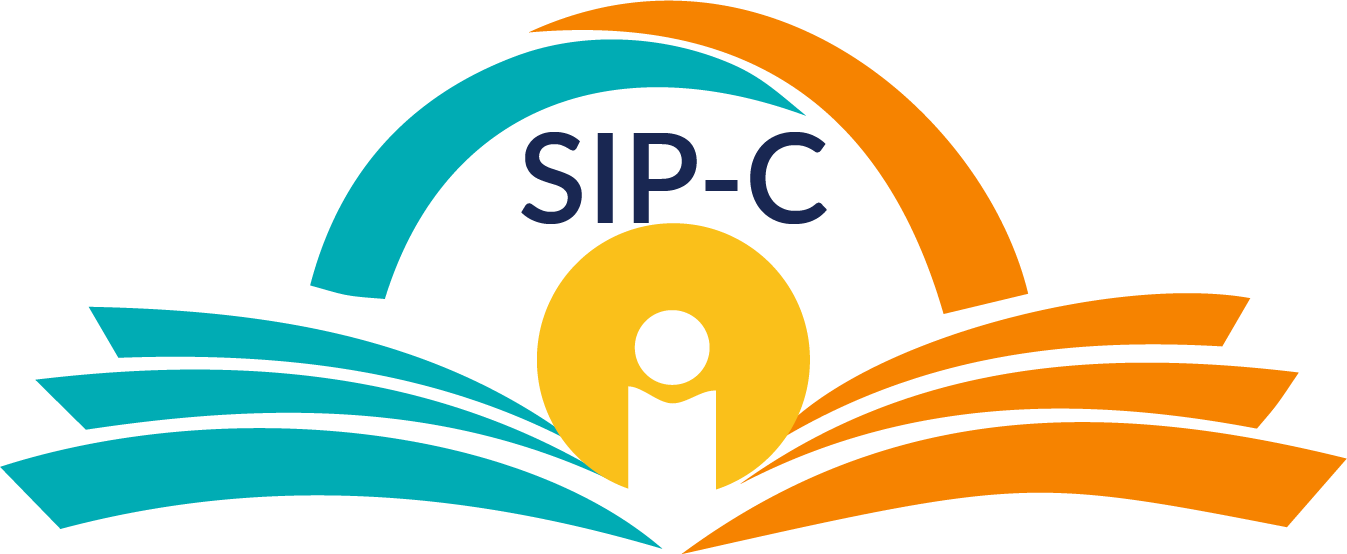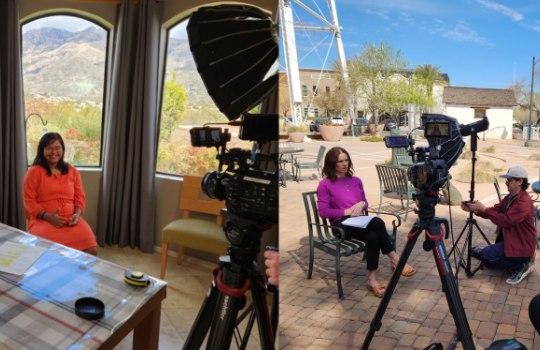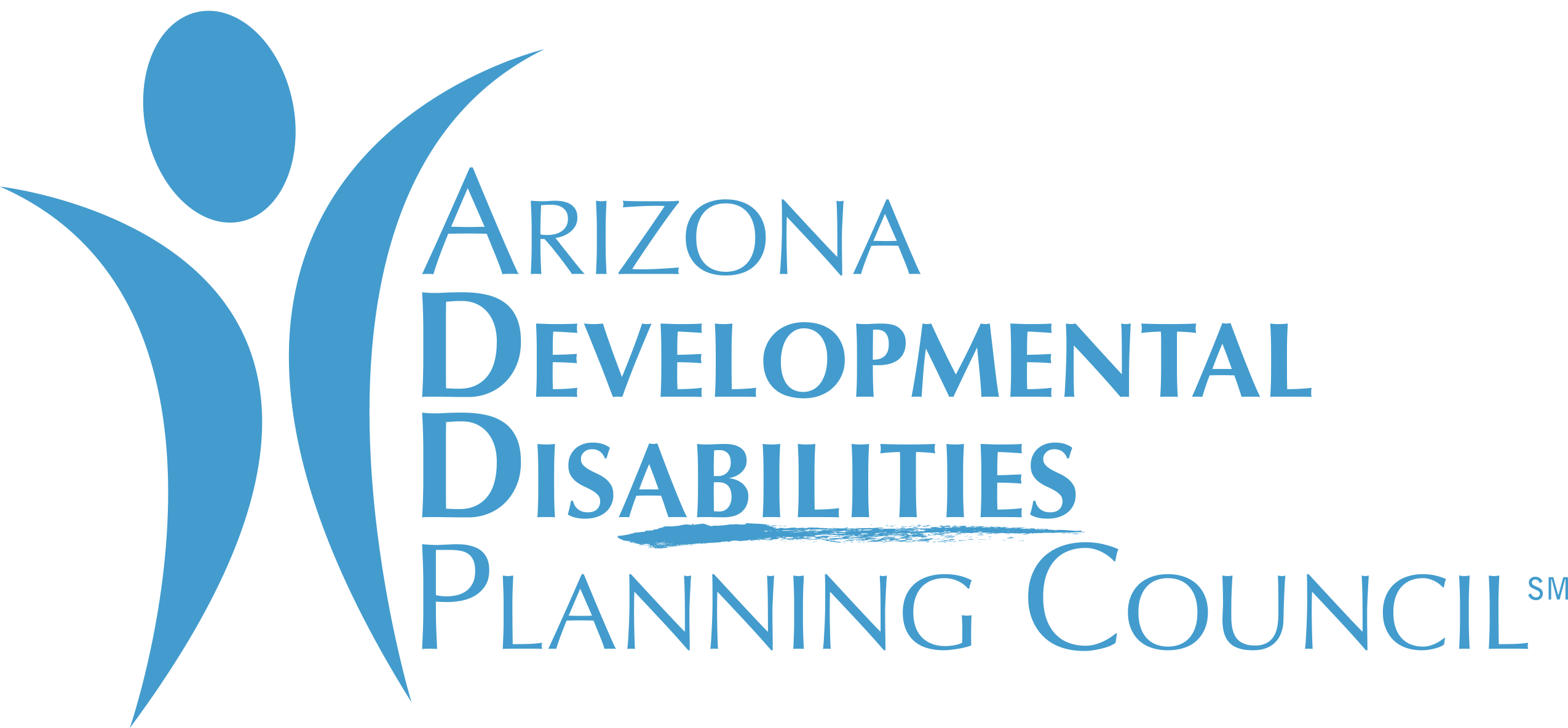ADDPC Grant Funded Projects
Supporting Inclusive Practices in Colleges Program (SIP-C)

Supporting Inclusive Practices in Colleges (SIP-C) is a postsecondary transition program seeking to empower individuals with intellectual disabilities to participate and thrive in higher education. A team of dedicated professionals engages directly with college-bound students to foster an atmosphere of inclusion. Now in its fourth year, the team is located at Northern Arizona University’s Institute for Human Development (NAU-IHD) and works collaboratively with Coconino Community College, Mohave Community College, Northland Pioneer College, and Arizona Western College.
The typical SIP-C student is 18-28 years old. However, the program accepts students still in high school wishing to dual enroll in community college. SIP-C students learn and engage with their non-disabled peers in inclusive academic settings. Educational coaches and peer mentors support students and their families through transitioning from high school to higher education and employment, including enrolling in and funding college, pursuing appropriate and necessary on-campus services, preparing for a career, and finding gainful employment opportunities. Our students attend various campus events, participate in student clubs and intramural sports, and connect several times a year to experience life as college students in fun and exciting ways.
The program encourages individuals with intellectual disabilities to set the bar high for success. The approach to inclusivity means that students are informed about college and career opportunities and supported in pursuing an advanced degree, certification, or credentials in any field. Using the “Front Door First” approach, SIP-C staff guide students in their postsecondary journey by introducing them to campus resources, such as TRiO programs which are a set of federally funded college opportunity programs that motivate and support students from disadvantaged backgrounds in their pursuit of a college degree. Student Support Services is one of five TRiO programs offered at Northern Arizona University. Academic Advisors, Educational coaches and peer mentors work closely with students to determine resources most frequently accessed by college students and help them develop the skills required to navigate college and community life.
To date, SIP-C has had forty-six students who have transitioned into postsecondary education. Many students pursue trades-based certificates or two-year degrees in fields such as Early Childhood Education and Information Technology. In May 2023, the team celebrated four students who graduated with college degrees. The students are highly motivated to succeed, and this past academic year, we had three students living independently on campus in Flagstaff, AZ. Many of the individuals who work with the program have improved socialization skills.
This summer, several students are excited to join the four-week summer session on “dating and relationships”.Dedicated Students who identify obtaining gainful and meaningful employment as one of their goals, are supported by a dedicated employment coach. The employment coach works closely with other statewide organizations, such as Vocational Rehabilitation, to assess students’ interests and natural talents, develop job readiness skills, and transition into the workforce. Finally, the SIP-C Advisory Council is composed of individuals, professionals, and students. The SIP-C Advisory Council convenes to offer its expertise to ensure program sustainability.
Grants from ADDPC and the U.S. Department of Education prprovideunding for SIP-C. If you or someone you know would like to schedule a meeting with an Advisor or campus coordinator in your area, please visit https://nau.edu/ihd/sip-c/ and complete an Interest Form.
The program is currently hiring part-time employment coaches and peer mentors. If you or someone you know is interested in working with highly motivated individuals with intellectual disabilities pursuing postsecondary education, please email [email protected].
Follow us on Instagram: @sipc.az.
____________________________________________________________________________________________________________________________________________________________________________________________________________________________
Developing health care self-advocacy educational resources in collaboration with adults with intellectual and/or developmental disabilities

Pictured from left to right are self-advocates Paavlena and Amber
A project team including self-advocates, professionals, and students from both the University of Arizona Sonoran Center for Excellence in Disabilities and Northern Arizona University has been traveling across the state to video interview self-advocates about their experience with health care as people with disabilities. The goal of this project—funded by the Arizona Developmental Disabilities Planning Council and led by Julie Armin, Ph.D., of the UArizona Sonoran Center and Heather Williamson, DrPH, of Northern Arizona University—is to develop short videos and compile learning materials in collaboration with people with intellectual and/or developmental disabilities about self-advocacy in health care.
In the 2020 Arizona Developmental Disabilities Planning Council’s Arizona Priorities Survey Report, more than 75% of individuals with I/DD indicated they “want” or “really want” help in stopping others from ignoring their needs. The planned videos aim to address that issue directly by equipping these individuals with knowledge of why and how to advocate for their needs through learning from their peers. Through feedback from a 5-person Steering Committee, composed of members who identify as adults with disabilities, the project team identified key learning objectives to be covered in the videos, which will be 2-3 minutes “testimonials” in English and Spanish, and one testimonial in ASL.
Interviews started with self-advocate Paavlena at her home, where she spoke in-depth about her experiences advocating for herself in health care settings while emphasizing the importance of women’s health. The next interview focused on Amber, another self-advocate who, through her compelling personal accounts, highlighted the importance of having ASL interpreters available in health care settings.
Amber and Paavlena's stories will be part of the larger video series expected to release later this year.
Share your health care story! The project team is still looking for self-advocates to share their stories, especially Spanish, Spanish speakers advocated will be compensated for their time, and asked to share examples of:
- How they advocate for their health care
- How they identify their health care needs
- How they know about their rights when it comes to health care
- How they prepare for health care visits
- How they make decisions about health care by themselves and with support
To get involved, contact Celina Urquidez, MPH, at [email protected] or visit bit.ly/sashareyourstory to learn more. DOWNLOAD FLYER
Spanish Translation (Traducir en Español)
Desarrollar recursos educativos de autodefensa de la atención médica en colaboración con adultos con discapacidades intelectuales y/o del desarrollo
Un equipo dedicado al proyecto, que incluye autogestores, profesionales y estudiantes del Centro Sonorense para la Excelencia en Discapacidades de la Universidad de Arizona y la Universidad del Norte de Arizona, ha estado viajando por todo el estado para entrevistar en video a autogestores sobre su experiencia con la atención médica como personas con discapacidades.
El objetivo de este proyecto, financiado por el Consejo de Planificación de Discapacidades del Desarrollo de Arizona y dirigido por Julie Armin, PhD, de UArizona Sonoran Center y Heather Williamson, DrPH, de la Universidad del Norte de Arizona, es desarrollar videos cortos y compilar materiales de aprendizaje en colaboración con personas con discapacidades intelectuales y/o del desarrollo sobre la autodefensa en el cuidado de la salud.
En el Informe de la Encuesta de Prioridades de Arizona del Consejo de Planificación de Discapacidades del Desarrollo de Arizona de 2020, más del 75% de las personas con I/DD indicaron que "quieren" o "realmente quieren" ayuda para evitar que otros ignoran sus necesidades. Los videos planificados tienen como objetivo abordar ese problema directamente al equipar a estas personas con el conocimiento de por qué y cómo abogar por sus necesidades a través del aprendizaje de sus compañeros.
A través de los comentarios de un Comité Directivo de 5 personas, compuesto por miembros que se identifican como adultos con discapacidades, el equipo del proyecto identificó los objetivos de aprendizaje clave que se cubrirán en los videos, que serán "testimonios" de 2-3 minutos en inglés y español, y un testimonio en ASL.
Las entrevistas comenzaron con la autogestora Paavlena en su casa, donde habló en profundidad sobre sus experiencias defendiéndose a sí misma en entornos de atención de la salud al mismo tiempo que enfatiza la importancia de la salud de la mujer. La siguiente entrevista se centró en Amber, otra autogestora que, a través de sus convincentes relatos personales, destacó la importancia de contar con intérpretes de ASL disponibles en los entornos de atención médica.
Las historias de Amber y Paavlena serán parte de la serie de vídeos más grande que se espera lanzar a finales de este año.
¡Comparta su historia de atención médica! El equipo del proyecto todavía está buscando autogestores para compartir sus historias, ¡especialmente hispanohablantes! Los autogestores serán compensados por su tiempo y se les pedirá que compartan ejemplos de:
- Cómo abogan por su atención médica
- Cómo identifican sus necesidades de atención médica
- Cómo conocen sus derechos cuando se trata de atención médica
- Cómo se preparan para las visitas de atención médica
- Cómo toman decisiones sobre el cuidado de la salud por sí mismos y con apoyo
Para participar, comuníquese con Celina Urquidez, MPH, en [email protected] o visite bit.ly/sashareyourstory para obtener más información. DESCARGAR FOLLETO







